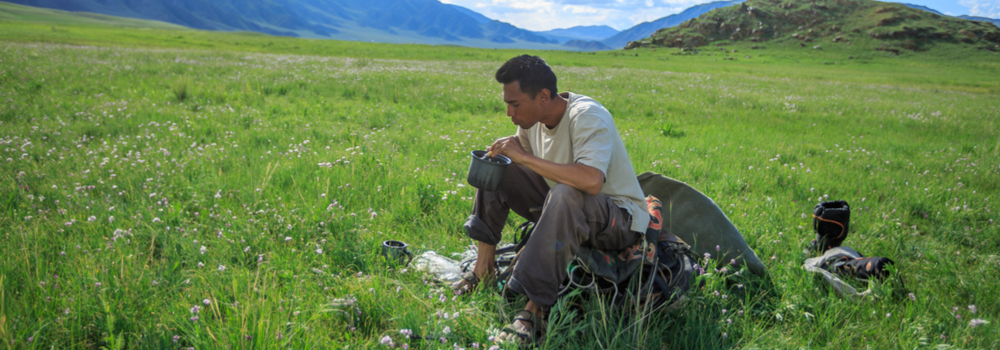Man has been connected to the outdoor elements for all of his existence, because he was born of it. Our earliest ancestors did not have a language to communicate with, let alone the comforts of a modern world to survive with. They slept outside and learned to survive in the natural elements, creating technology and modern methods out of the need to master and work with those elements.
When we think about the evolution of man, the idea of “camping” being invented seems a bit out of place. How and when did spending times outdoors become a recreational luxury after it was a necessity? Around the 1869, reports Smithsonian. In April of 1869, a minister by the name of William H.H. Murray published a guidebook, the first comprehensive guide to camping for modernizing America. Called Adventures in the Wilderness or Camp-Life in the Adirondacks, the book was “Promoting a powerful combination of nature as a spiritual and physical cure, and camping as an open and equal activity…”.
By the summer of 1869, thousands of people were flocking to the Adirondacks to participate in this new vacation of camping. Rather than be filled with hunters who were there by vocation and trade, the mountains were filled with people who were there simply to be there and to be cured by nature. The book instructed people on practical matters of camping like how to get to the best spots, gear necessary for camping, and guides in the area.
Murray’s publication stood out “…because Murray was the first writer to present camping as a pilgrimage,” the Smithsonian writes. “…Pilgrims typically seek escape from the routine and restrictions of ordinary life in order to find spiritual satisfaction and comfort, as well as other desired objectives like wealth, longevity, or happiness.” Post-Civil War America was booming and evolving, bringing the annoyances of a modernizing society like “Smoke, noise, and crowding…and other rapid changes left many city dwellers confused, alienated, and with their sense of identity unmoored and adrift.”
Adventures called to attention the ‘profanity’ of city life, as the article describes, and urged readers to understand that time in nature was the remedy to what ails them. One of the first publications of its kind, Murray could be considered a founder of camping and seeking spirituality outdoors. His words were not the first of their kind, but the first to be arranged in such a way as to have a profound impact. Hundreds of years later, we still heed Murray’s warnings and leave the city for the great outdoors.
Tree House Recovery is a men’s residential treatment program located in Portland, Oregon. Creating sustainable recovery through sustainable change, our programs help men learn how to live sober with adventurous lives. Call us today for information: (503) 850-2474




